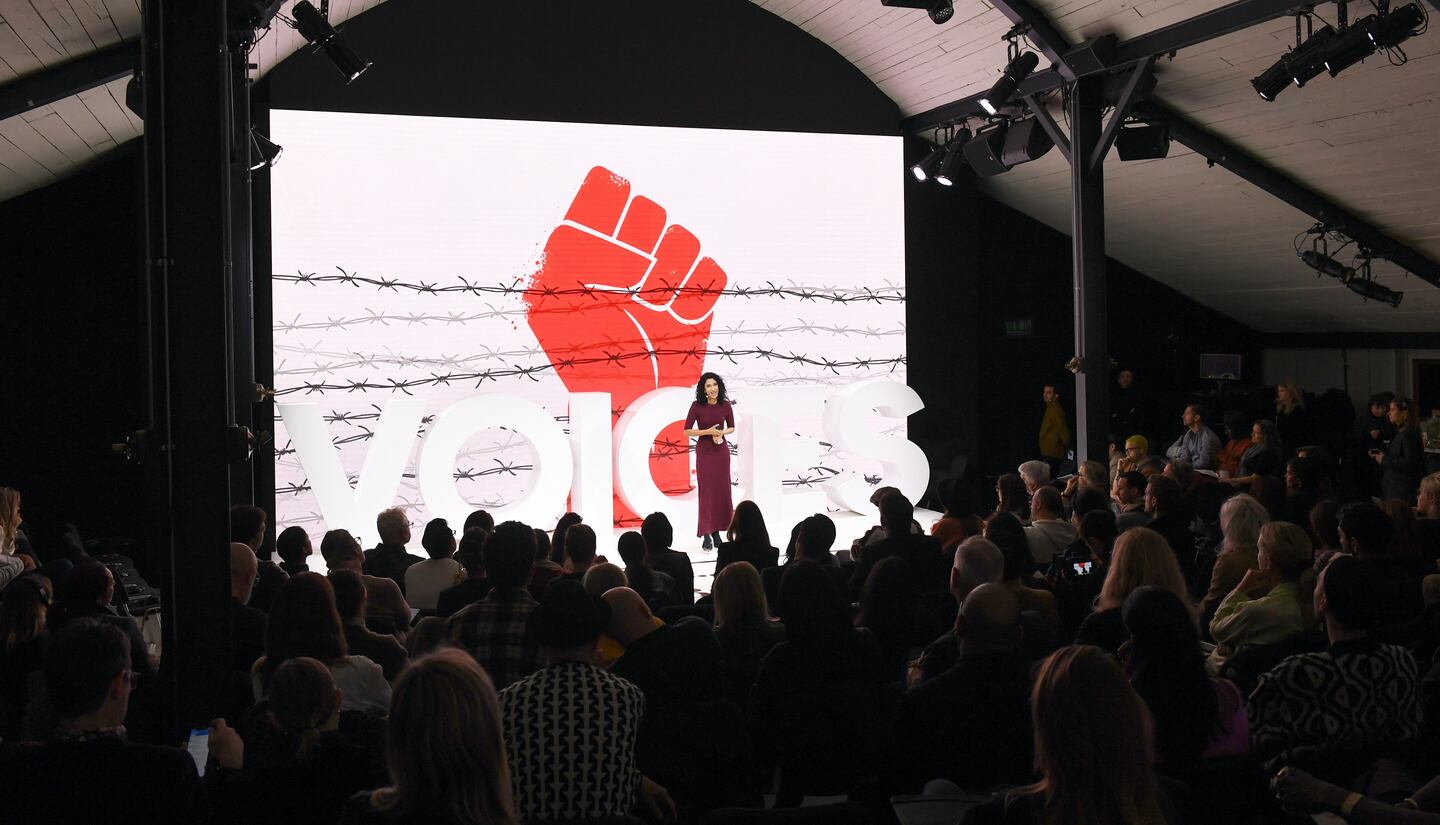
The Business of Fashion
Agenda-setting intelligence, analysis and advice for the global fashion community.

Agenda-setting intelligence, analysis and advice for the global fashion community.

OXFORDSHIRE, United Kingdom — We hear a lot about human rights. Trisha Shetty is only too familiar with the other side of the coin: human wrongs. Taking to the BoF VOICES stage, the Indian social activist and lawyer recalled how, in December 2016, she received a call from an Indian father whose four-and-a-half-year-old daughter had been raped by a store owner's relative after she had stepped across the road from their home to buy chocolate.
Over the next few months, the father and daughter faced overt, aggressive discrimination as they were bounced between hospitals, police stations and courtrooms. Doctors, who heartlessly referred to the girl as “that raped child,” tried to charge the family for medical care, despite this being unlawful in India. The police forced the girl to identify her rapist by asking her to approach and tap the shoulder of the man who had abused her from a line-up.
Shetty didn’t share this story on stage at VOICES for shock value or sympathy. She wanted to bring to light the systematic human rights abuses that occur not just in India, but all over the world.
“The more I started fighting for human rights, I got familiarised with human wrongs. How systematic and organised those active human wrongs are… with a very real desire to break down your spirit,” said Shetty, who has been the victim of bullying, sometimes from powerful figures in government and religion.
ADVERTISEMENT
Those engaging in human wrongs show no civility, show no politeness... But when we speak up, we are expected to do so politely.
“Those engaging in human wrongs show no civility, show no politeness,” she continued. “But when we speak up, we are expected to do so politely. These damn rules are more so imposed on young people, on women, on people of colour, on gender non-conforming people.”
Shetty founded SheSays, a non-profit organisation working for gender equality through youth and civic-society engagement, in 2015. The organisation does a lot of work around public safety and security, health and education, advocating policy change through a gender-sensitive lens.
Time and time again she hears people saying they want to effect change against human rights abuses, but don’t know where to start. That's not an excuse, said Shetty. It’s up to individuals “to speak up and demand for better from our world leaders.”
Showing up and continuing to stand in solidarity until justice is served is the way change happens.
In September this year, the four-year-old girl's rapist, a repeat offender, was convicted and put behind bars. This happened because her father refused to give up, showing perseverance and tenacity despite meeting obstacles at every turn.
"When I think of resilience, I think of it as a muscle, two steps forward one step back three steps forward five steps back. But we still keep showing up,” she said.
Shetty offered a parting message for the VOICES audience: “This is a highly sanitised room. All of us are talking about issues, but what I will leave you [with] is: What can our learnings be to make an impact? The truth is we are leaving too many people behind, we all need to do better.”
To learn more about VOICES, BoF's annual gathering for big thinkers, visit our VOICES website, where you can find all the details on our invitation-only global gathering.
From analysis of the global fashion and beauty industries to career and personal advice, BoF’s founder and CEO, Imran Amed, will be answering your questions on Sunday, February 18, 2024 during London Fashion Week.
The State of Fashion 2024 breaks down the 10 themes that will define the industry in the year ahead.
Imran Amed reviews the most important fashion stories of the year and shares his predictions on what this means for the industry in 2024.
After three days of inspiring talks, guests closed out BoF’s gathering for big thinkers with a black tie gala followed by an intimate performance from Rita Ora — guest starring Billy Porter.